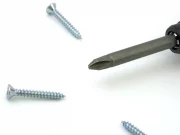
Your fridge might be loud due to a malfunctioning compressor or loose parts. Excessive noise can also stem from a clogged defrost drain.
Refrigerators are essential appliances in our homes, keeping our food fresh and safe to eat. But a loud fridge can disrupt the calm of your kitchen. Various factors contribute to a noisy refrigerator. It could be something simple like an uneven floor causing vibrations, or it might indicate a more serious issue like compressor problems or a faulty fan motor.
Understanding the source of the noise is crucial for maintaining the longevity and efficiency of your refrigerator. Regular maintenance can prevent some of these issues, while others may require professional repair. By addressing noise problems early, you can ensure your fridge runs smoothly and quietly.
Common Sources Of Refrigerator Noise
Is your refrigerator making too much noise? A peaceful home often counts on the quiet operation of appliances. The sounds coming from your fridge can be more than just a nuisance; they might signal an issue. Let’s explore the common culprits behind a noisy refrigerator.
Compressor Rattles And Humming
The compressor is your fridge’s heart. Normally, it makes a low humming sound. Loud rattles or humming can suggest problems. Inspect the following:
- Secure mounting bolts.
- Dirt or debris around compressor coils.
- Loose or damaged isolation feet under the compressor.
A noisy compressor may require professional attention. Keep the area clean and check these elements regularly.
Fan Blades And Air Flow Disruptions
Fan blades move air to cool your fridge. Obstructions or wear can cause noise. Look for:
- Dust or debris on the fan blades.
- Loose fan motor mounts.
- Bent or damaged fan blades.
Cleaning fan blades and ensuring they are secure often solves fan noise issues. Reach out to a technician if problems persist.
Initial Troubleshooting Steps
Before you call in the professionals, some basic troubleshooting steps can help identify why your fridge is creating so much noise. Identifying the root cause can sometimes be simpler than you think. Let’s dive into some initial checks you can carry out.
Checking For Uneven Grounding
A fridge that’s not sitting level on the ground can cause loud noises. It’s important to ensure your fridge is perfectly balanced to prevent any unusual vibrating sounds.
- First, find a spirit level to check the fridge’s balance.
- Place the level on top of the fridge and see if the bubble is center.
- If it’s off-center, adjust the fridge’s legs or use shims to achieve a balanced position.
Assessing The Contents And Fridge Layout
Sometimes the source of the noise could be due to the contents inside, or the way shelves and drawers are arranged.
- Check if items are resting against the interior walls. This can cause noise when the fridge runs.
- Reorganize items to ensure there’s space around them, reducing the chance of vibrations and noise.
- Ensure drawers and shelves are securely in place because if they’re loose, they will rattle.
Effective Soundproofing Techniques
If the hum from your fridge is loud, don’t worry! Fridge sounds can be quiet. Let’s see how to make a fridge quieter with some cool tricks!
Strategic Placement Of The Fridge
Where you put your fridge matters. A good spot can make it less noisy. Let’s find the best place for your fridge!
- Keep it away from walls. This stops sound from bouncing.
- Make sure the fridge isn’t touching other stuff. This keeps vibrations low.
- Put the fridge on a flat surface. It helps it stay quiet.
Sound-absorbing Materials To Dampen Vibrations
Did you know some things can soak up fridge sounds? They’re called sound-absorbing materials. They’re like super sponges for noise! We’ll use them to make your fridge whisper-quiet.
| Material | Place on Fridge | Effect |
|---|---|---|
| Rubber Mats | Under the Fridge | Cuts down shaking sounds |
| Foam Padding | Behind or Around the Fridge | Traps noise like a soft pillow |
| Soundproof Blankets | On Top or Sides | Makes fridge almost silent |
When To Call A Professional
Sometimes, refrigerators get loud, and it’s not just background noise. It might be time to consult an expert if your fridge is too loud. Recognizing when professional help is needed can save your fridge and your wallet from further damage. Let’s understand when to reach out to the experts.
Signs Of Mechanical Failures
Loud noises from a refrigerator can be alarming. Several signs indicate a serious issue:
- Constant running: The fridge should cycle on and off. Constant running is a red flag.
- Unusual sounds: Pops, bangs, or hissing noises are signs of trouble.
- Vibration: Excessive shaking could suggest a malfunction.
- Leaking water: Puddles around your fridge can point to a broken part.
These signs might mean a failing component. Acting early prevents more damage. Call a technician if you spot these signs.
Understanding Warranty And Repair Services
A warranty can save costs on fridge repairs. It’s essential to understand the terms. Here are important warranty details:
| Warranty Aspect | What to Check |
|---|---|
| Duration | How long is the fridge under warranty? |
| Inclusions | What parts and services does the warranty cover? |
| Service Providers | Who is authorized to perform the repairs? |
| Claim Process | How do you arrange for repairs under warranty? |
Check warranty status before seeking repairs. Use authorized service providers to maintain the warranty. Repair services might offer extended protection plans. Consider these for longer security.
Preventive Maintenance Tips
Maintaining a quiet and efficient fridge doesn’t require expert skills. Simple, regular upkeep can prevent unexpected loud noises. Let’s explore some easy-to-follow tips that keep your fridge running smoothly.
Routine Cleaning And Coil Care
Keeping your fridge clean is about more than just aesthetics. Dirt and dust can cause your refrigerator to work harder, which leads to more noise.
Follow these steps for cleaning:
- Unplug the fridge. Safety first.
- Remove the kickplate or grill.
- Use a coil brush to gently clean the coils.
- Remove loose debris with a vacuum.
- Replace the kickplate or grill and plug the fridge back in.
Do this bi-annually to keep noise levels low.
Monitoring And Managing Noise Levels
Staying aware of your fridge’s sounds can help prevent larger issues. A fridge makes normal sounds but watch out for sudden changes.
Here’s how to manage noise levels:
- Listen for unusual noises. Buzzing or gurgling can indicate a problem.
- Adjust the fridge’s position. Make sure it’s level.
- Check if items inside cause vibration when the fridge runs.
- Tighten any loose screws or fittings.
- If noise persists, consult a professional.
Regular checks can keep your fridge quiet and functional.
Frequently Asked Questions For Why Is My Fridge So Loud
How Do I Stop My Fridge From Making A Loud Noise?
To stop a loud fridge, level it, clean the condenser coils, and check for loose parts. Ensure nothing is blocking the fan and defrost if necessary. For persistent noise, consult a technician.
Should I Worry About Noisy Fridge?
A noisy fridge can indicate a problem. Listen for unusual sounds like clicking or buzzing, and if persistent, consult a technician. Quick attention may prevent larger issues.
Why Is My Fridge Humming So Loud?
Your fridge may hum loudly due to excessive ice buildup, an unbalanced fan, or a failing compressor. Regular maintenance and checking for obstructions can help reduce noise.
What Does A Bad Refrigerator Compressor Sound Like?
A bad refrigerator compressor often makes loud, grating or knocking noises, indicating a potential malfunction or failure.
Conclusion
Understanding the reasons behind your noisy fridge can bring peace to your kitchen. Regular maintenance may prevent most issues. Seeking professional help is wise for persistent sounds. Remember, a silent fridge equals a serene home environment. Prioritize addressing those mysterious hums and buzzes for optimal appliance health.




















